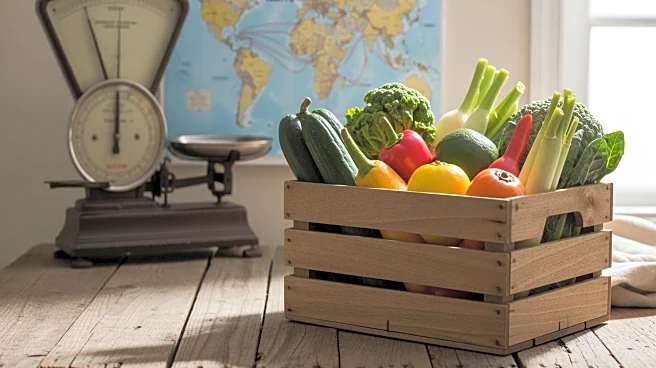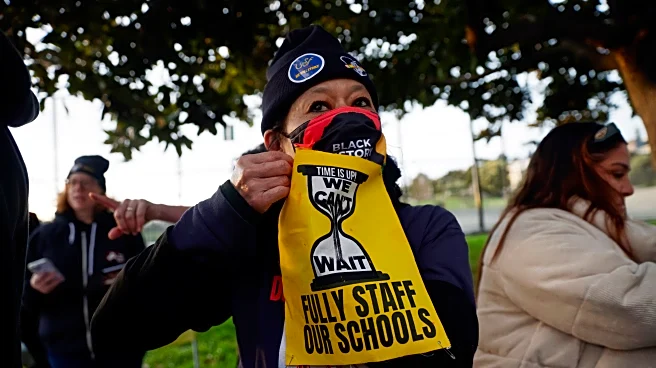What's Happening?
Canadian farmers are experiencing significant challenges due to ongoing tariffs and trade issues with China and India. Conservative MPs have been pressing the Liberal government to address these issues,
highlighting the impact on various agricultural sectors, including canola, peas, pork, and seafood. The tariffs have led to a substantial drop in prices, putting Canadian farmers at risk. The government has been criticized for its slow response, with calls for tariff relief and better market access. Foreign Affairs Minister Anita Anand has engaged in discussions with Chinese and Indian representatives, but tangible results are yet to be seen.
Why It's Important?
The tariffs and trade barriers are having a profound impact on Canadian agriculture, a sector that is crucial to the country's economy. The inability to export key products like beef to certain markets exacerbates the situation, affecting farmers' livelihoods and the broader agricultural supply chain. The ongoing trade tensions highlight the need for effective diplomatic and trade strategies to secure market access and protect domestic industries. The situation underscores the vulnerability of Canadian farmers to geopolitical shifts and the importance of government intervention in trade negotiations.
What's Next?
The Canadian government is expected to continue its diplomatic efforts to resolve trade disputes and secure better market access for its agricultural products. The outcome of these negotiations will be critical for the future of Canadian agriculture. In the meantime, farmers may need to explore alternative markets and strategies to mitigate the impact of tariffs. The situation also calls for a reevaluation of trade policies and support mechanisms to ensure the resilience of the agricultural sector in the face of global trade challenges.











